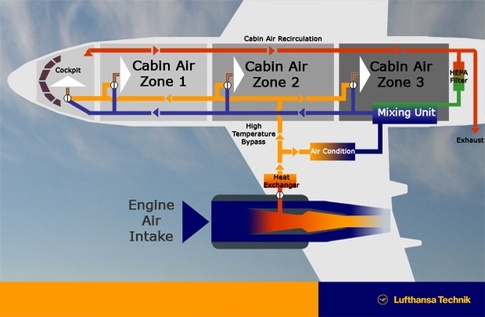That would appear to be affirmative. In fact, changes in cabin air pressure may affect the brain to the degree that making decisions or even properly responding to e-mails when the brain has less oxygen at 40,000 feet is not a good idea.
The good Professor David Gradwell of King’s College London is Britain’s first Professor of aviation medicine. In an interview in London’s Daily Mail, he points out that a plane cruising at 40,000 feet has air pressure that is equal to that found at about 7,000 feet off the ground. Learning is a bit impaired at this altitude so he advises that airplanes are not the environment in which you want to be making important business or life decisions.
It is important to note that pilots routinely utilize only a portion of the oxygen they carry in supply on board. This is a cost-savings measure and most cockpit crews are under instructions not to increase the fresh air flow unless several passengers complain tot he flight attendants that the cabin air is “stuffy” or “hard to breathe.” Of course, even on long-haul flights, most passengers say absolutely nothing and put up with a decreased flow of oxygen to the brain. This is an issue that is being addressed in the new Boeing Dreamliner and other new generation aircraft.
The aviation doctor is concerned that, as internet usage becomes available to all flyers, more and more folks will be doing e-mail and other business tasks that require critical thinking. The problem is that air pressure in the cabin is lower than it is at sea level so the brain is fighting for oxygen which serves to diminish mental performance.
